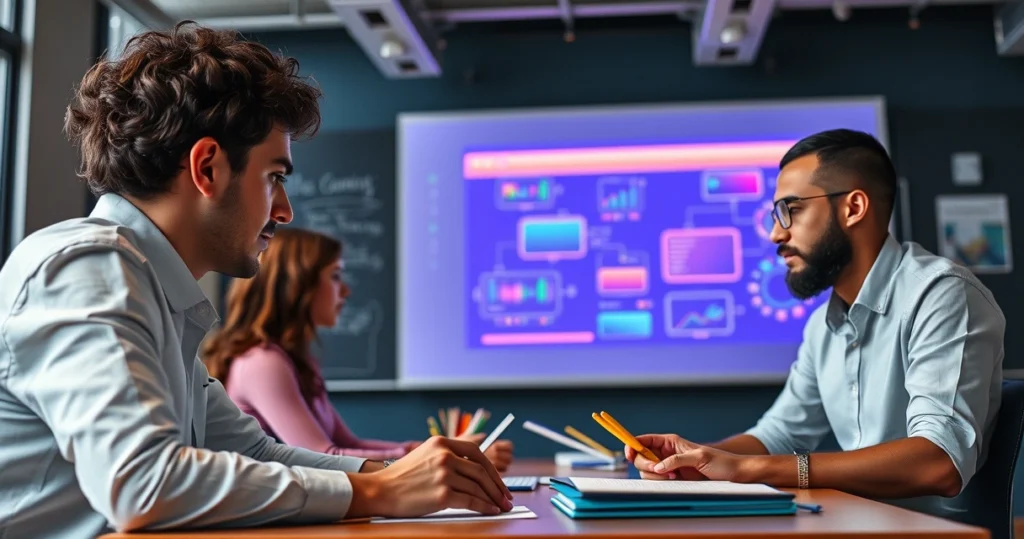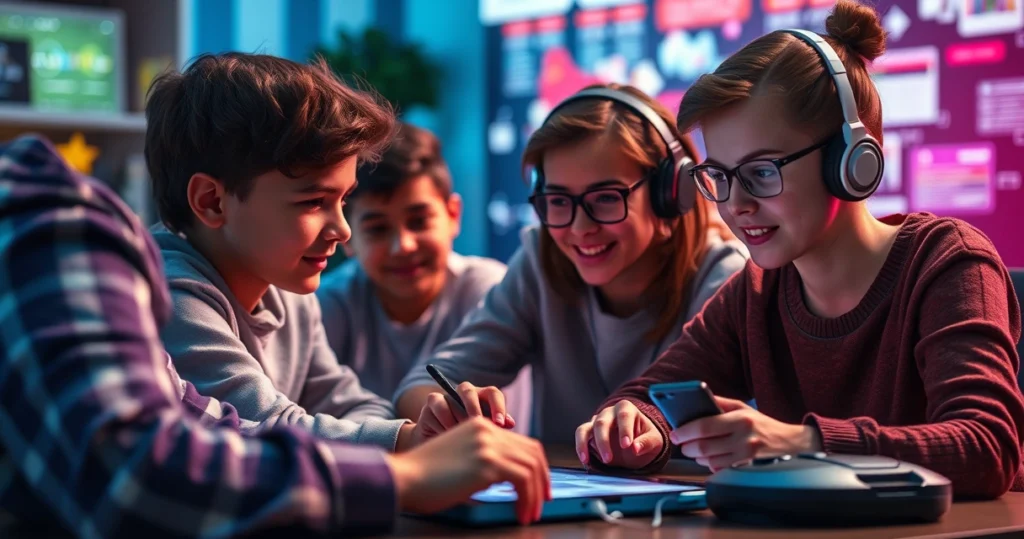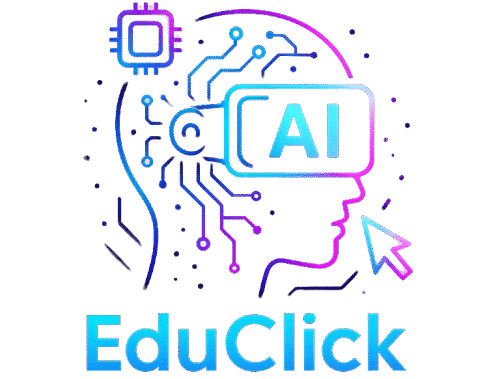The Evolution of Learning: Key Trends Driving the Future of Education
Imagine a classroom that transcends the boundaries of traditional education—a space where creativity thrives, technology empowers, and learning feels deeply personal. As you sit down to engage with the evolving landscape of education, you might reflect on your own journey as a student. Perhaps it was a passionate teacher who inspired you, or a groundbreaking lesson that transformed your understanding of the world. Education, in its essence, is not just about acquiring knowledge; it’s about fostering a lifelong love for learning that extends far beyond the classroom walls.
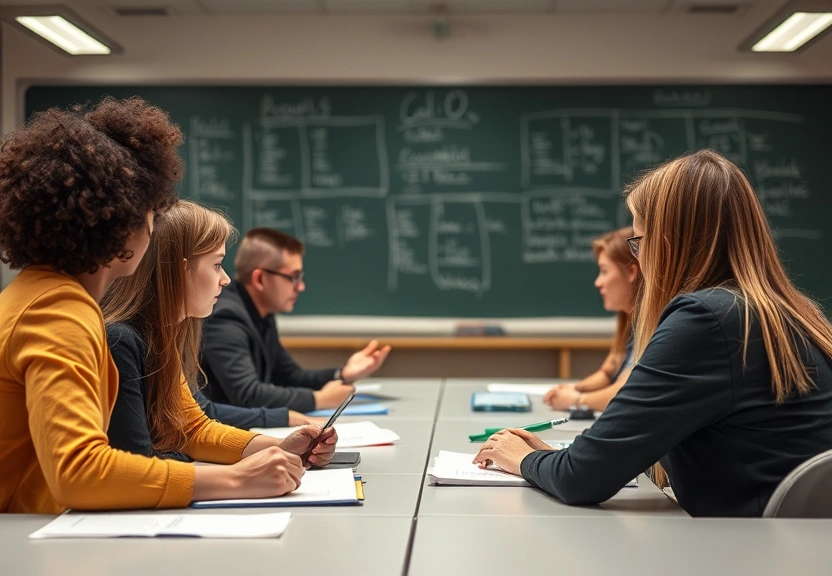
Today, you stand at the cusp of a revolution in education. The rise of digital tools, evolving pedagogical approaches, and a heightened focus on personalized learning experiences are redefining what it means to learn. These changes are not mere trends; they are the future of education, shaping how knowledge is imparted and absorbed. As you delve into this article, prepare to explore the pivotal trends driving this transformation and uncover the innovative teaching methods that are setting new standards for educational excellence.
Whether you’re an educator eager to adopt the latest strategies or a lifelong learner curious about the direction of modern education, this exploration promises to be both enlightening and empowering. As we journey through the key trends reshaping education, consider how these shifts resonate with your experiences and aspirations. The evolution of education is not just an industry-wide phenomenon; it is a personal narrative that touches the lives of students, teachers, and communities worldwide.
In this article, you’ll discover how trends in learning are not only transforming classrooms but also addressing the unique needs of every student. From the integration of technology to the rise of experiential learning, each section will provide actionable insights and practical examples to deepen your understanding. So, let’s embark on this journey into the future of education together, exploring the dynamic shifts that are defining a new era of learning.
1. Personalized Learning: Tailoring Education to Individual Needs
The Rise of Adaptive Learning Technologies
Adaptive learning technologies are revolutionizing the classroom by offering personalized learning experiences tailored to each student’s needs. These technologies employ sophisticated algorithms to analyze data from students, adjusting content in real-time based on individual performance.
- Software platforms like DreamBox and Knewton adapt math and science courses to suit learning paces.
- Students receive immediate feedback, promoting a deeper understanding of material.
- Educators can track progress and identify areas requiring additional support.
Benefits of Personalized Education
Personalized education shifts the focus from a one-size-fits-all approach to one that considers individual learning styles.
- Enhances student engagement by catering to interests and strengths.
- Reduces dropout rates by providing targeted support.
- Encourages self-directed learning and critical thinking.
Implementing Personalized Learning in Schools
Schools are increasingly embracing personalized learning, integrating it into curriculums through various methods.
- Creating individual learning plans for students.
- Utilizing project-based learning to explore student interests.
- Incorporating flexible pacing in lesson plans.
2. The Integration of Technology in the Classroom
Embracing Digital Tools in Education
Technology has become an integral part of modern education, offering new ways to engage and instruct students.
- Devices like tablets and laptops enhance interactive learning.
- Platforms such as Google Classroom streamline communication and assignment submission.
- Virtual classrooms extend learning beyond physical boundaries.
The Role of Artificial Intelligence in Education
Artificial intelligence (AI) is playing an increasingly significant role in personalizing and enhancing educational experiences.
- AI-driven tools provide real-time analytics on student progress.
- Chatbots assist in providing 24/7 support and tutoring.
- AI can automate administrative tasks, allowing educators to focus on teaching.
Challenges and Opportunities of Educational Technology
While technology presents numerous opportunities, it also poses challenges that must be addressed.
- Ensuring equitable access to technology for all students.
- Balancing screen time with traditional learning activities.
- Protecting student data and privacy.
🎥 Vídeo complementar sobre o tópico
3. Experiential Learning: Beyond Traditional Classrooms
The Importance of Hands-On Learning
Experiential learning emphasizes learning through action, reflection, and real-world experiences.
- Field trips and internships offer practical insights into industry practices.
- Service-learning projects connect students with community issues.
- Simulations and role-playing exercises develop critical thinking and problem-solving skills.
Case Studies in Experiential Learning
Many educational institutions are implementing innovative experiential learning programs.
- Universities partnering with local businesses for cooperative education programs.
- High schools offering career pathways that include practical workshops.
- Elementary schools incorporating garden projects to teach sustainability.
Integrating Experiential Methods into Curriculums
Educators can effectively integrate experiential learning into their curriculums by:
- Incorporating project-based assessments.
- Facilitating student-led research projects.
- Utilizing reflective journals to encourage introspection.
4. The Shift Towards Lifelong Learning
The Growing Demand for Continuous Education
Lifelong learning is becoming crucial as industries evolve and new skills are required.
- Online courses and MOOCs provide flexibility for adult learners.
- Professional development programs help employees upskill.
- Workshops and seminars offer specialized knowledge.
Creating a Culture of Lifelong Learning
Fostering a culture that values continuous education is essential for personal and professional growth.
- Encouraging curiosity and a growth mindset from a young age.
- Implementing mentorship programs in workplaces.
- Providing incentives for further education, such as tuition reimbursement.
Tools and Resources for Lifelong Learners
Lifelong learners have access to an array of resources to aid their educational journeys.
- Platforms like Coursera and Udemy offer diverse courses on various subjects.
- Podcasts and webinars serve as accessible learning mediums.
- Networking groups and forums facilitate knowledge exchange.
5. The Importance of Emotional and Social Learning
Understanding Emotional Intelligence in Education
Emotional intelligence (EI) is critical in developing well-rounded individuals capable of empathy and effective communication.
- Programs focusing on EI teach students to manage emotions positively.
- Role-playing and group discussions enhance interpersonal skills.
- Mindfulness practices promote emotional regulation and resilience.
Case Studies on Social and Emotional Learning (SEL)
Schools implementing SEL programs report positive outcomes in student behavior and learning.
- Increased student engagement and reduced behavioral issues.
- Higher academic achievement and improved classroom dynamics.
- Enhanced student-teacher relationships and peer interactions.
Incorporating SEL into Educational Frameworks
Integrating social and emotional learning into curriculums can be achieved through:
- Implementing dedicated SEL classes and activities.
- Training educators in EI and SEL approaches.
- Encouraging parental involvement in emotional education.
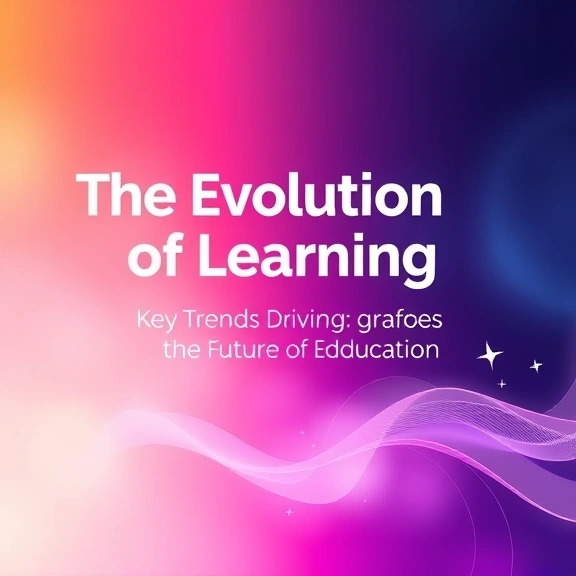
What are the main benefits of personalized learning?
Personalized learning benefits include increased student engagement, improved academic performance, and reduced dropout rates. By tailoring education to individual learning styles, it promotes a deeper understanding and retention of material. It also encourages students to take ownership of their learning, fostering independence and critical thinking skills.
How is technology transforming the future of education?
Technology is revolutionizing education by enabling interactive and flexible learning experiences. Tools like AI provide real-time analytics, while digital platforms facilitate seamless communication. Virtual classrooms and online resources expand access to education, breaking geographical barriers and allowing customized learning paths.
What is experiential learning, and why is it important?
Experiential learning emphasizes learning by doing, allowing students to apply theoretical knowledge in real-world scenarios. It fosters critical thinking, problem-solving, and adaptability. Through hands-on experiences like internships and simulations, students gain practical skills and insights that enhance their educational journey.
Why is lifelong learning becoming more important?
In today’s rapidly changing world, lifelong learning is crucial for personal and professional development. As industries evolve, continuous learning equips individuals with the skills needed to adapt and thrive. It encourages a growth mindset, ensuring that individuals remain competitive and capable of meeting new challenges.
How can schools support emotional and social learning?
Schools can support emotional and social learning by incorporating dedicated SEL programs into curriculums. This includes activities that enhance emotional intelligence, communication, and empathy. Training educators and involving parents in SEL initiatives also play a critical role in fostering a supportive learning environment.
What challenges does educational technology face?
Educational technology faces challenges such as ensuring equitable access, protecting student privacy, and managing screen time. Addressing these challenges requires comprehensive policies and infrastructure support. Schools and policymakers must work collaboratively to ensure technology benefits all students universally.
How do adaptive learning technologies work?
Adaptive learning technologies use algorithms to analyze student data, adjusting content in real-time to meet individual learning needs. By providing customized feedback and resources, these technologies enhance understanding and retention, allowing students to progress at their own pace while receiving the support they need.
What resources are available for lifelong learners?
Lifelong learners have access to a vast array of resources, including online courses, workshops, seminars, podcasts, and networking groups. Platforms like Coursera and Udemy offer flexible learning opportunities, while professional organizations and forums facilitate the exchange of knowledge and experiences among peers.
How can educators implement innovative teaching methods?
Educators can implement innovative teaching methods by integrating technology, adopting experiential learning approaches, and focusing on personalized education. Continuous professional development and collaboration with peers also enable teachers to remain informed about the latest educational trends and best practices.
How does SEL affect academic performance?
Social and emotional learning positively impacts academic performance by fostering a supportive learning environment. By developing emotional regulation, empathy, and communication skills, students are better equipped to handle social interactions and stress, leading to improved focus, engagement, and overall academic success.
Conclusion: Embracing the Future of Education
The evolution of education is a dynamic process that mirrors the complexities of our ever-changing world. As you’ve explored the key trends driving the future of education, it becomes evident that embracing these changes is not just beneficial—it is essential. Personalized learning, technology integration, experiential methods, lifelong learning, and emotional intelligence are more than buzzwords; they are the building blocks of a more resilient and inclusive educational system.
As an educator, student, or lifelong learner, your journey is intertwined with these transformative trends. The future of education promises to be one where learning is personalized, inclusive, and adaptable, equipping students with the skills needed to succeed in a rapidly evolving world. By embracing these innovations, you can contribute to an educational landscape that fosters creativity, critical thinking, and empathy.
So, what can you do today to prepare for the future of education? Begin by exploring new teaching methods, investing in digital tools, and fostering a culture of curiosity and growth. Encourage collaboration, celebrate diversity, and prioritize the well-being of learners at all stages. As you take these steps, you’ll not only enhance your own educational journey but also empower others to thrive in a world full of opportunities.
In conclusion, the evolution of education is more than a trend; it is a movement towards a brighter, more equitable future. By staying informed and engaged, you play a vital role in shaping this future. Embrace the possibilities, take action, and inspire others to do the same. Together, we can create an education system that truly reflects the diverse and dynamic world we live in.
Key Takeaways
- Personalized learning enhances student engagement and performance by catering to individual needs.
- Technology integration is transforming education, providing flexibility and accessibility.
- Experiential learning offers hands-on experiences that foster critical thinking and adaptability.
- Lifelong learning is essential for personal and professional growth in a rapidly changing world.
- Social and emotional learning develops essential skills for effective communication and empathy.

